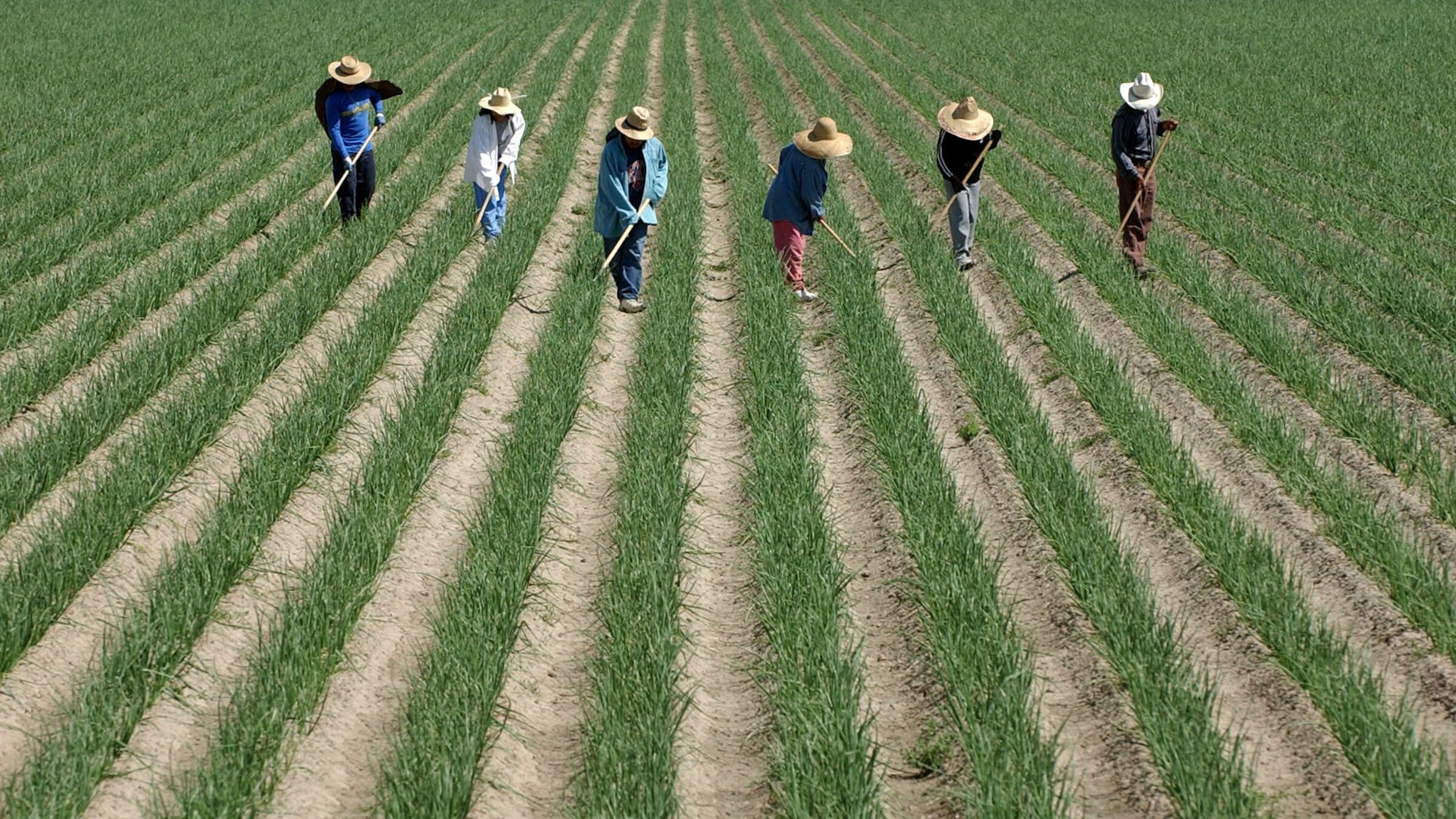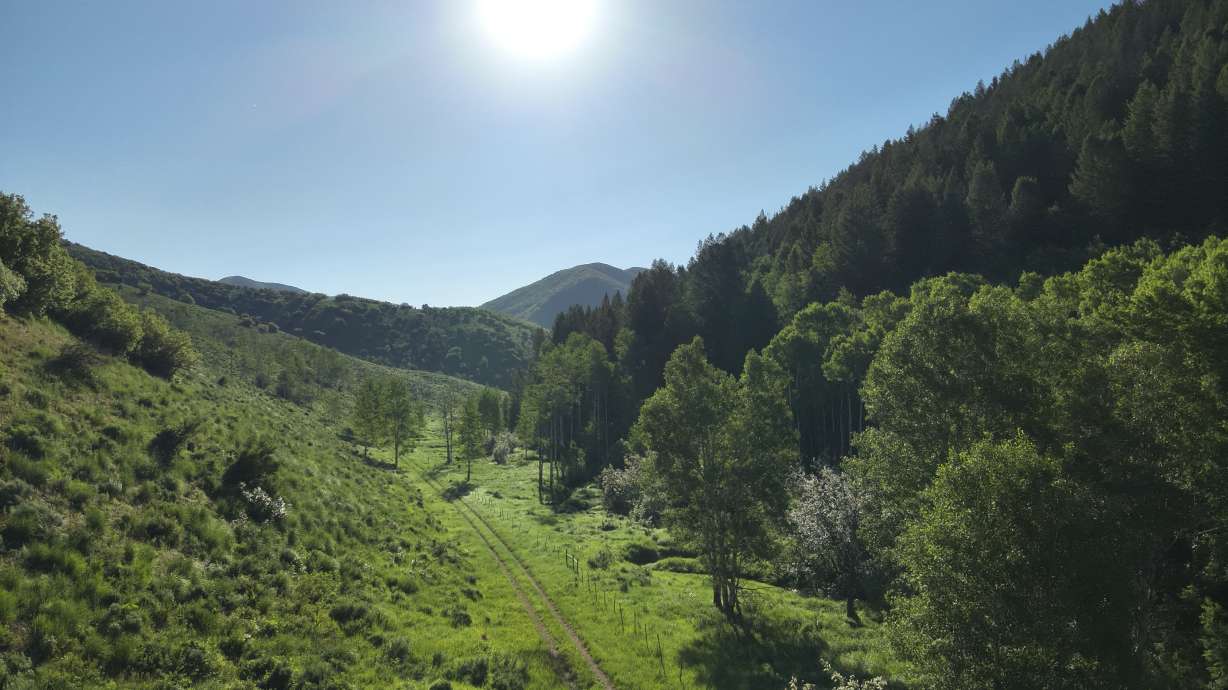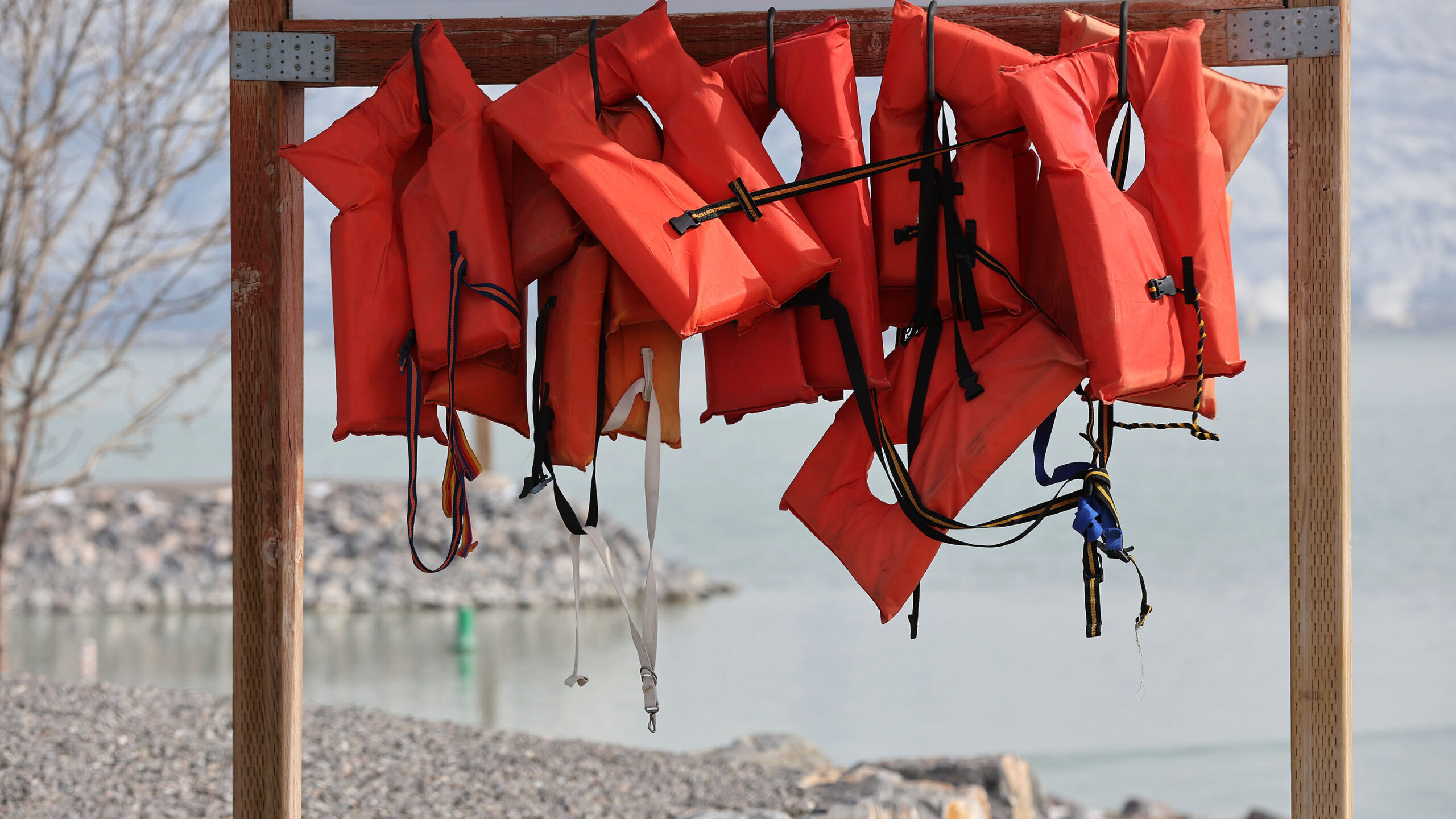Hard times in a good year: Why lifting Title 42 won’t help Utah’s farm labor shortage
Jun 23, 2023, 1:27 PM | Updated: 1:47 pm

FILE: Migrant workers hoe weeds along rows of onions near Corrine, Utah. Utah farmers and lawmakers say that a change to Title 42 won't affect Utah's farm labor shortage. (Keith Johnson, Deseret News)
(Keith Johnson, Deseret News)
OGDEN, Utah — Utah’s farm labor shortage isn’t immediately apparent in a field next to Ogden River, about an hour’s drive north of Salt Lake City. There, five men are using weed whackers to clear a stretch of irrigation trench that feeds into an onion crop.
One of the workers, Baltasar Sampayo, has a mixture of sweat, dirt and grass clippings encrusted on his face — the only clean patch of skin is around his eyes, a perfect outline of the safety glasses he’s just removed.
(Hugo’s audio report as featured on Dave and Dujanovic, is below.)
He’s from Mexico and has worked on Gibson Green Acres farm for eight years.
“I have my house; I have my truck thanks to this job,” he said.
He sends the money he earns in the United States home to his family.
“We have a stable life, both my mother and my son and my wife are not lacking.”
Baltazar’s boss is Ron Gibson, who, while running his own dairy and onion farm, is the president of the Utah Farm Bureau.
“Our family’s been here for a dang long time, we’ve been on the same farm since 1869,” he recollected. But he said he’s hurting because of Utah’s farm labor shortage.
The workers are few and far between
For Ron’s farm to be fully operational he needs about 60 people working, but workers like Baltazar have been increasingly hard to come by for some time now.
“It’s been really, really hard, pre-COVID and extremely difficult post-COVID,” he said.
Utah farmers rely heavily on migrant labor from south of the border. It’s been this way for generations.
“20 years ago, we used to have five to ten people a week coming around looking for a job, 10 years ago, we used to have people coming looking for jobs. Now nobody comes looking for jobs,” Ron explained.
Can’t put all the blame on COVID-19
It would be easy to point the finger at COVID-19, the blanket excuse for any economic woe in the last few years. But when it comes to immigration and labor, it’s a fair accusation.
Pandemic-era policies like Title 42 essentially put a stop to immigration for three years.
Title 42 was lifted on May 11 this year. But Ron doesn’t think it will ease the labor problem facing farmers across the country.
“We don’t really think so,” Ron said. “It’s been a long time since people have come around looking for jobs on the farm.”
Lifting Title 42 isn’t the answer
There are several reasons why the end of Title 42 is unlikely to impact Utah’s farm labor shortage.
First, if you speak to immigration lawyers, they will tell you it’s a different type of migrant crossing the border nowadays.
Most are fleeing conflicts in countries like Venezuela. The people coming to the U.S. are often well-educated and held professions in things like medicine, education, and law. So, there’s less incentive to deskill to farm labor.
Secondly, the H2A Work Visa, which is tailored to agriculture, was active throughout the enforcement of Title 42.
Farmers in the USA have used it for years to get workers legally. But there’s a major flaw in the program.
“We can use the H2A program for our produce farm, we cannot use it for our dairy farm. It’s against the law to use it for a dairy farm,” Ron said.
The H2A Visa does not accommodate for labor with livestock. Most farms in Utah run livestock.
A familiar foe
At the end of the day, it all comes down to the age-old foe. Money.
“Most of them leave [ranches] because for example in construction, they pay $20 to $22 dollars (an hour). In a ranch they pay up to $16,” Baltazar said.
“It is logical that like any person, right? They will go where they earn more.”
Short-staffed farming operations don’t produce to their capacity, which means to fill the hole that’s left, markets have to import goods from elsewhere.
“I think the craziest thing we can do from a perspective of national security, is watch our food have to be produced somewhere else,” Ron said.
Immigration, labor, and Utah Gov. Spencer Cox
Gov. Cox has traditionally been quite vocal on the topics of immigration and labor.
He told KSL in a sit-down interview that immigration and labor are issues that both sides of the political spectrum agree on.
“Most Republicans actually support fixing legal immigration and (making) it easier for immigrants to come legally, and most Democrats also believe that we should secure the border.”
Governor Cox believes immigration and labor go hand in hand and should be a state-handled issue.
“It is frustrating because immigration under the Constitution is a federal issue. That’s very clear. States have tried to step in,” he said.
A solution for Utah’s farm labor shortage, gathering dust on the shelf
Over a decade ago Utah passed comprehensive immigration reform, which has been ultimately ignored by Congress.
“I think it’s a model for the nation. Unfortunately, neither the Obama administration nor the Trump administration allowed us to implement that immigration reform,” the Governor said.
“So we have the solution sitting on a shelf right here in Utah.
“It would allow for special work visas for people who are here, would give them an opportunity to not gain citizenship but to gain legal status, which is really important, and would bring illegal immigrants out of the shadows. They would pay taxes like everyone else.
“So those solutions are out there. Republicans and Democrats supported it.”
Even though the Governor says the solutions are there, farmers like Ron are getting desperate and don’t see a light at the end of the tunnel.
“I just drove around my farm today … feel like we’re just swamped, and we’re behind. I mean, there’s so much work that needs to be done here,” Ron said.
The Governor seems to feel the same way.
“I’m not holding my breath, though, when it comes to Congress and their ability to deal with a very complicated and controversial issue.”
Related reading:
- China’s soured milk and its impact on Utah’s dairy farmers
- World wheat shortages an opportunity for Utah farmers
- Union Pacific, Utah farmers, relieved threat of strike has passed
- Utah farmers gain more flexibility with water rights under proposed bill
- New mental health program focuses on Utah farmers













